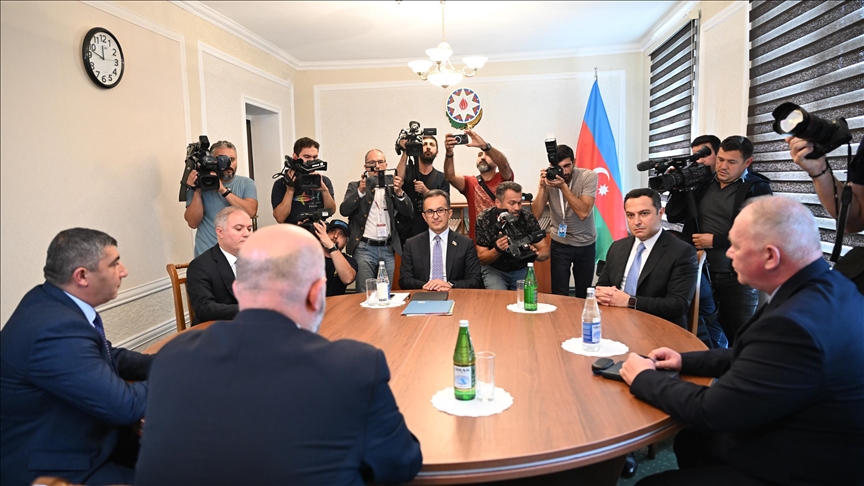
MOSCOW
he first round of Armenia-Azerbaijan negotiations concluded on "constructive and positive" note on Thursday afternoon, an official statement issued in Baku said.
The meeting was held in Yevlakh city, 265 kilometers (165 miles) west of Baku, in a "constructive and positive atmosphere" as both sides discussed issues of reintegration of the Armenian population of Karabakh into Azerbaijani society, the Azerbaijani presidential administration said in the statement.
Delegation of Armenian population of Karabakh arrives in the city of Yevlakh to meet with the Azerbaijani authorities https://t.co/9uZtiF03KO pic.twitter.com/A4lw1BzqF1
— Anadolu English (@anadoluagency) September 21, 2023
Representatives of Armenian residents of the Karabakh region of Azerbaijan asked for humanitarian aid, primarily fuel and food, it noted.
"At the request of representatives of the Armenian population, it is planned to ensure the supply of fuel for the heating systems of kindergartens and schools, as well as emergency medical services and fire services, and to provide humanitarian support in the near future," the statement said.
Both sides agreed to hold another meeting in the near future, it added.
The Azerbaijani side was represented by Ramin Mammadov, envoy for contacts with Armenian residents in Karabakh, deputy special representative Bashir Hajiyev, and Ilkin Sultanov.
The Armenians, meanwhile, were led by officials Sergey Martirosyan and David Melkumyan.
A representative of the Russian peacekeeping contingent in the region was also present at the meeting.
Azerbaijan on Wednesday suspended its counter-terrorism measures, a day after they were launched to disarm Armenian forces in Karabakh, and uphold the 2020 trilateral peace agreement.
Relations between Baku and Yerevan have been tense since 1991, when the Armenian military occupied Karabakh, a territory internationally recognized as part of Azerbaijan, and seven adjacent regions.
In the fall of 2020, Azerbaijan liberated several cities, villages, and settlements from Armenian occupation during 44 days of clashes. The war ended with a Russia-brokered cease-fire, and talks for normalization of ties began.








